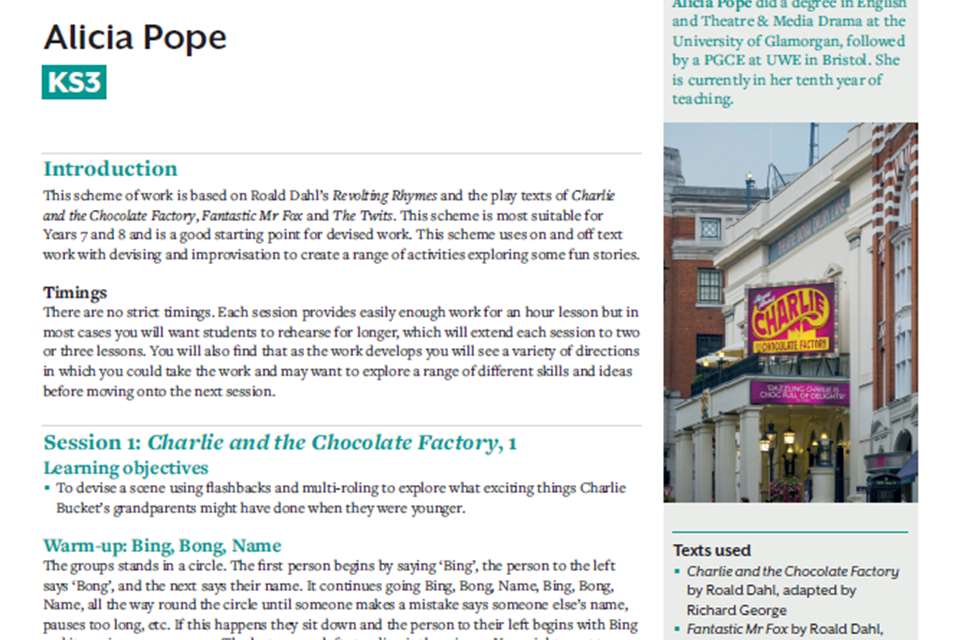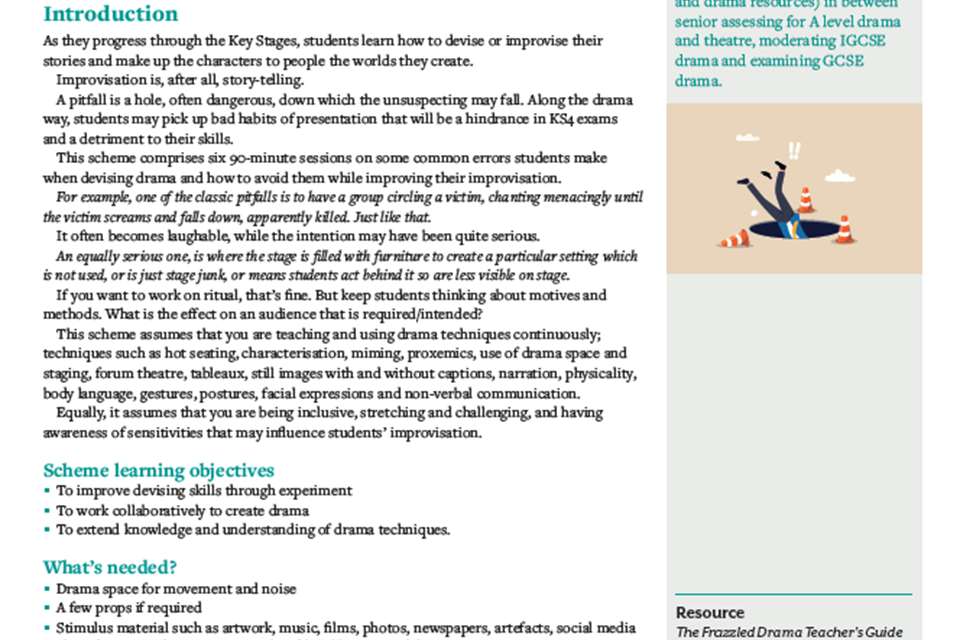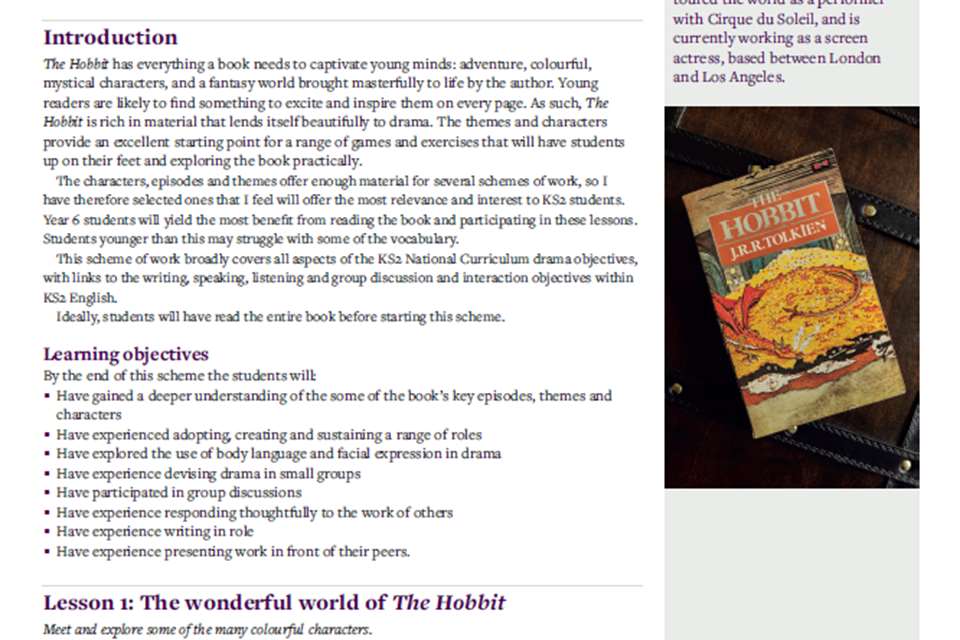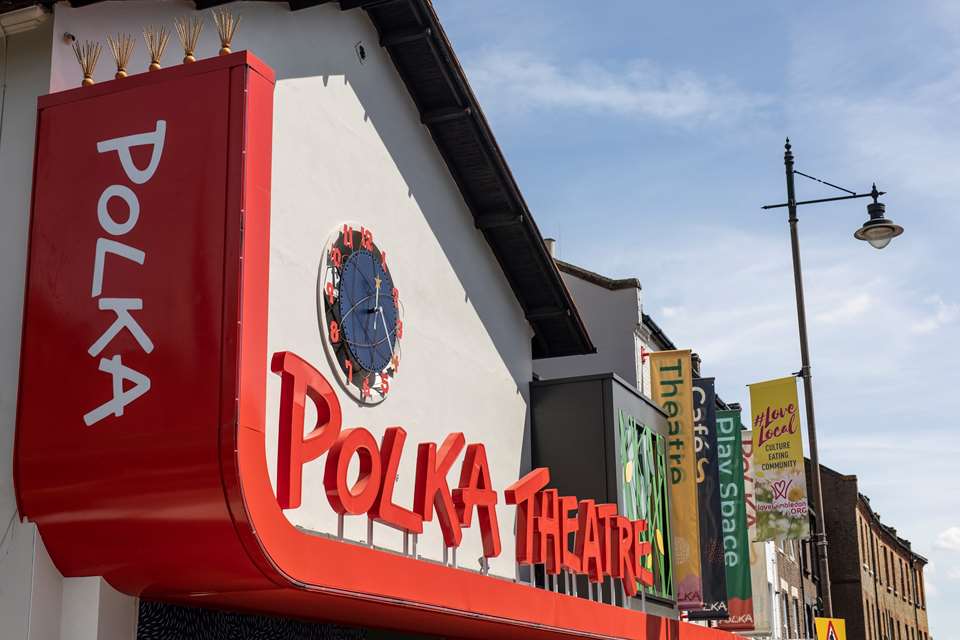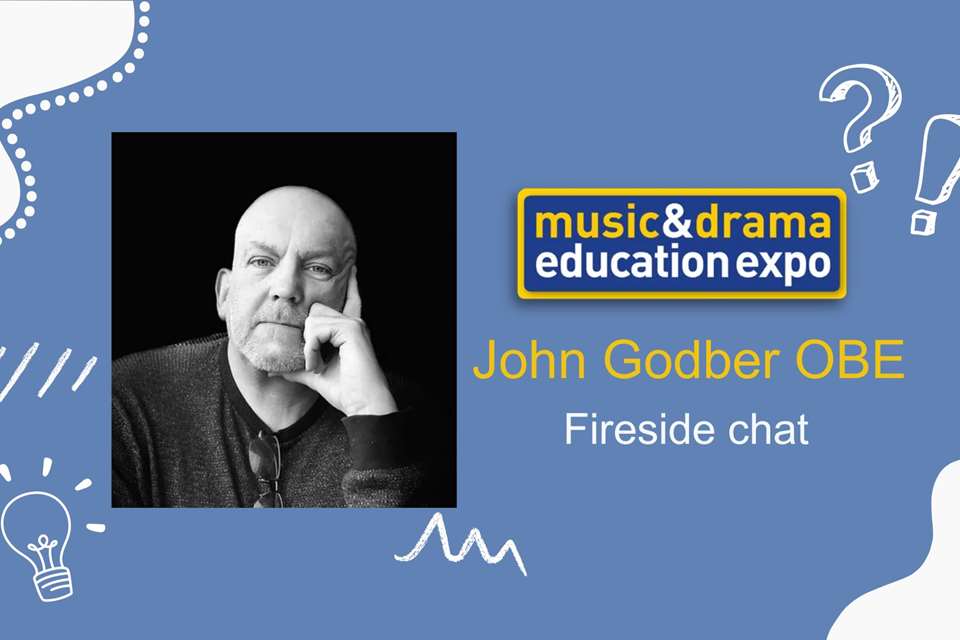Beatbox Academy: Pied Piper meets hip-hop
Natasha Tripney
Thursday, February 1, 2024
The Beatbox Academy from Battersea Arts Centre is engaging young people with its latest hip-hop show, Pied Piper. Natasha Tripney speaks to its artistic director to find out the impact on the ground.
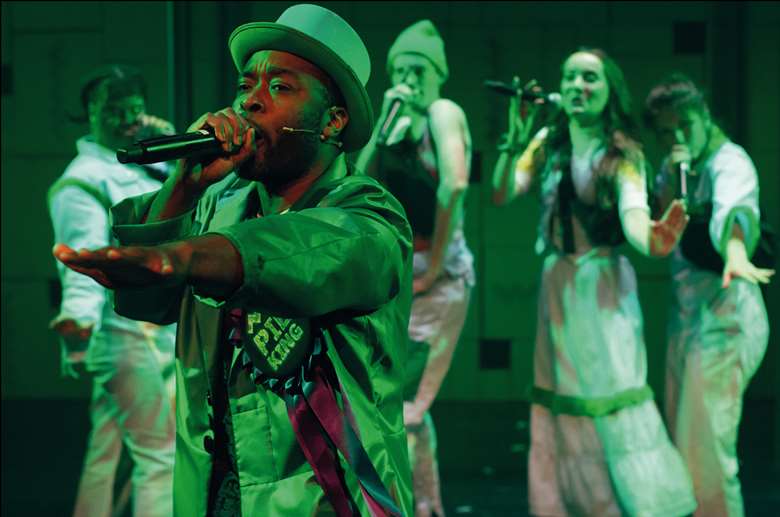
Ali Wright
The story of the Pied Piper is, says Conrad Murray, artistic director of Battersea Arts Centre's Beatbox Academy, the perfect fit for a hip-hop show. ‘It's a story about the power of art and the power of music and poetry,’ he says. The folkloric tale is also rife with ambiguity, he adds. The protagonist is at once the hero and the villain. ‘And we live in an age where things aren't clean cut.’
In Pied Piper, a mix of gig, musical and open mic night performed by a group of talented young beatboxers, Murray, who also co-directs, plays the role of the piper summoned by Hamelin's music-hating mayor to rid the pie factory of vermin.
A twisting tale
The show, which opened last October at Battersea Arts Centre and is now touring the UK, also features a community chorus of young performers. Some venues have, Murray says, have been a bit resistant to this. ‘They ask: can you do it without them? And I say, no, they're the point of the show!’ Once the venues see it, however, once they understand, Murray says, they usually come around quickly. In fact, he says, they often want to get more schools involved. ‘What a case for cooperation, on and beyond the stage,’ Susannah Clapp wrote in her review for The Observer. The show concluded by celebrating the role that arts and performance play in shaping young minds, opening the doors of imagination and creativity, something Murray clearly cares about.
Pied Piper follows on from their 2018 hit Frankenstein: How to Make a Monster. The Academy's first professional show, it became a huge hit for BAC, touring everywhere from Edinburgh to Australia, and was eventually made the subject of a BBC4 documentary.
Sharing a passion
Established in 2008, the BAC Beatbox Academy has become a significant part of UK hip-hop theatre ecology and one of BAC's most successful community outreach initiatives. The Academy operates as a drop-in session. ‘Anyone can come at any time and it's free,’ he says. This means that students don't have to commit to a series of workshops or feel like they will let people down if they skip a session, which might deter them from coming back.
The Academy is open to anyone from 11-29 years in age, which means that young people from a spectrum of ages are able to mix unlike in a school environment where everyone is grouped according to age. Kids age emotionally at different rates, he says, and some kids feel more comfortable with older children than their peers. The older members get to teach the younger ones and to experience the confidence that comes with that.
‘They get that feeling of sharing something and knowing more than someone else,’ he says, which in turn can be a real boost to them. Having read Ken Robinson on the importance of intergenerational work when it comes to creativity, and how it's often not utilised enough, Murray tries to counter this. ‘We have a lot to learn from different age groups,’ he says. ‘Some people are old souls or more advanced musically and they want to talk to people that are more like-minded.’
True inclusivity
He also talks passionately about the importance of true inclusivity when it comes to projects like this. The academy attracts participants from all socio-economic backgrounds. That's what real diversity should be, he says. ‘When people talk about targeting certain groups, I shudder.’ If you feel like you're being targeted because you're from a certain background, it can be off-putting, he adds. One of the positives of the academy is that young people who attend get to meet people from different backgrounds.
They've had members who were unhoused as a result of domestic violence, he says by way of example. They've had members from relatively wealthy backgrounds too. The Academy welcomes all of them. Some former members have gone onto successful stage careers (one is now performing at the Globe Theatre), but one senses with Murray that this is not the goal. What's important is the experience people get when they attend, the boost to their confidence and creativity, that sense of having their talent recognised by someone.
Leading by example
He knows the importance of this from personal experience. Murray grew up on an estate not far from Battersea Arts Centre. He struggled at school. ‘I was on a path to being quite a little shit. School is awful when you don't feel like you're good at anything,’ he says. The only thing he really cared about was music; his social worker recognised this and encouraged him to apply for the Brit school, the performing arts school in Croydon whose alumni include Amy Winehouse and Tom Holland. ‘I would never have heard of it otherwise,’ he says.
His time at the Brit School wasn't the door-opening experience it is for some. He found the culture shock difficult to deal with and ended up leaving with no GCSEs, finishing his schooling at South Thames College. It was while he was there that one of his teachers took him to BAC. He was blown away by the experience – the theatre he saw there completely upended his idea of what theatre could be – and became determined to become part of this world. It required some persistence on his part, but eventually he joined the youth theatre at BAC. An early attempt at a satirical hip-hop show put him on BAC's radar and led to him getting the Beatbox Academy gig.
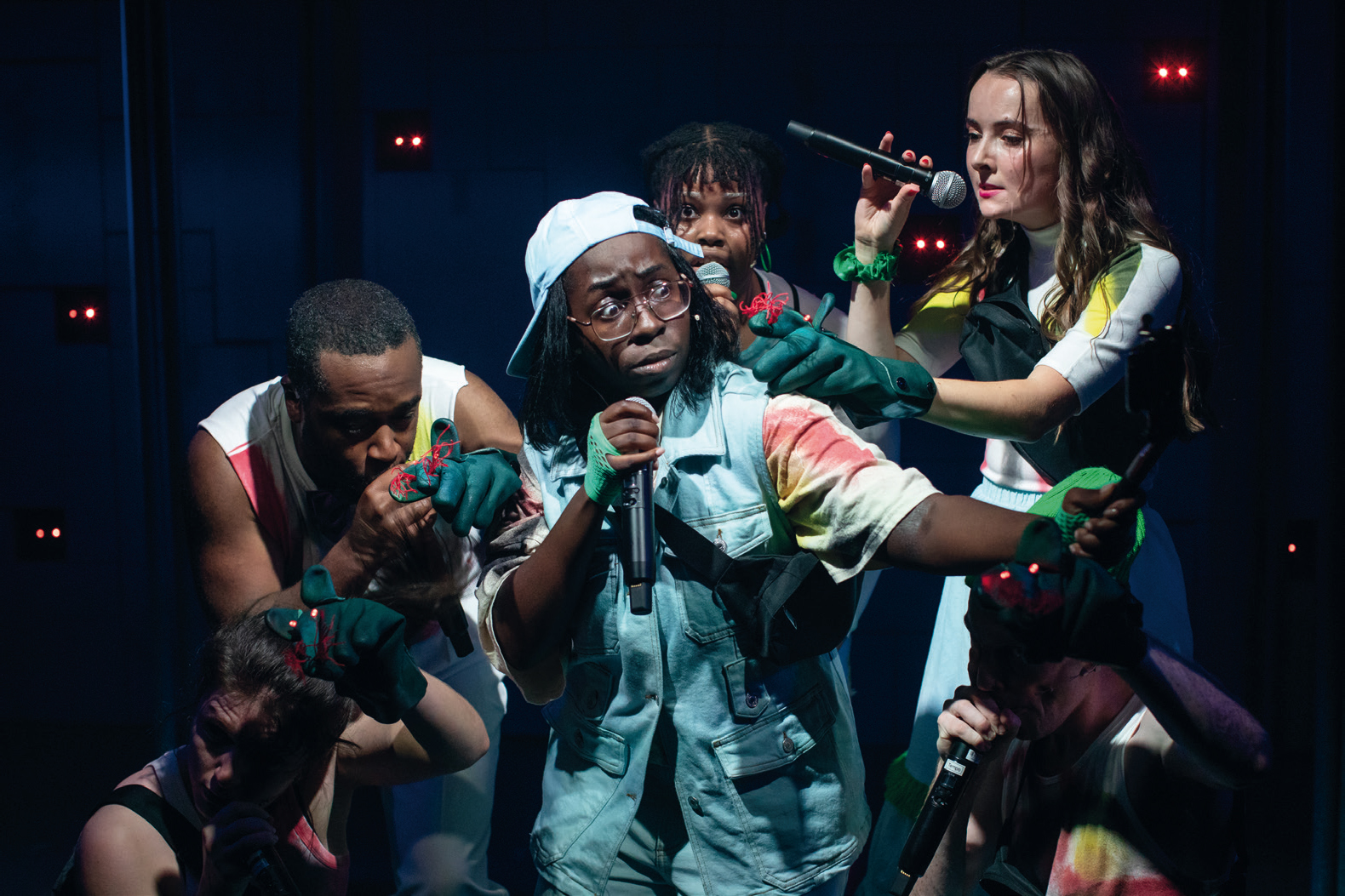
© ALI WRIGHT
A performance of Pied Piper
Moving forward
In addition to his work with the academy, Murray continued to make work with his company Beats and Elements and work on shows like the recent adaptation of Michael Rosen's Unexpected Twist. Whenever he's working at the academy or in schools, he always shows pupils a demo of his work. ‘When they believe that you're someone who knows what they're talking about, it has a different effect,’ he says.
When you praise their work, they know it's coming from a place of knowledge and experience. Those moments matter, he says. You can see it on the kids’ face when you tell them they're good at something. He remembers that feeling himself, what it feels like for your skills to be recognised as a young person, what it feels like to be told you have talent. ‘I still connect with those moments,’ he says.
‘As a teacher, as a leader, as a director, you have an opportunity to create change in the future and influence in your community. It's a massive responsibility. I never really forget it, you know, I always have that in my mind.’


